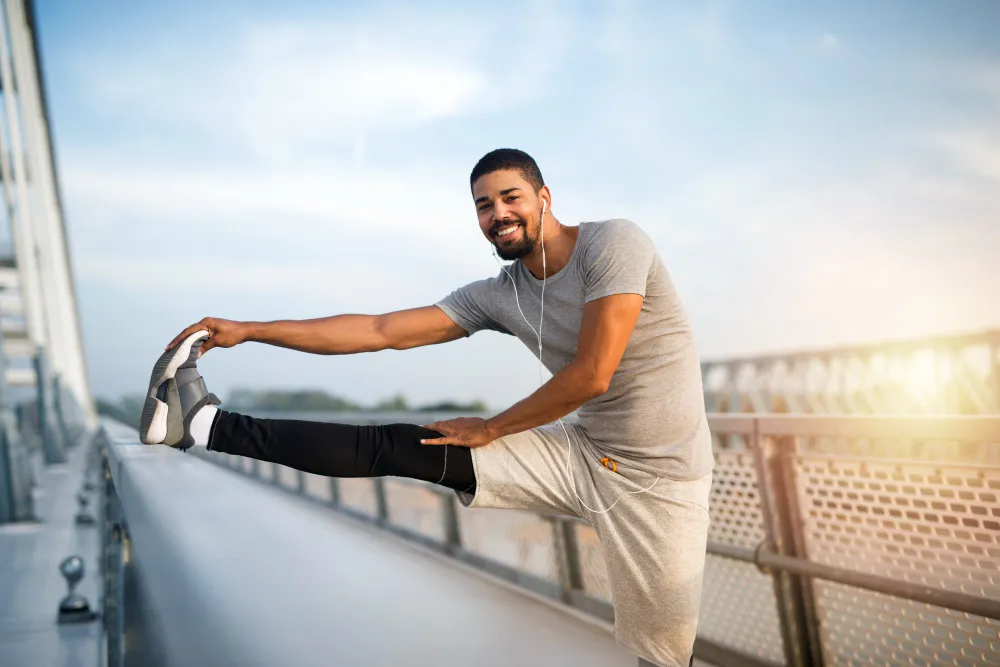
Let’s talk about your body for a moment. It carries you through work deadlines, family chaos, and weekend adventures. But what happens when your body starts aching or feels discomfort?
This is where physiotherapy steps in—not as a last resort for injuries, but it’s a lifestyle to keep you moving freely and living fully.
Physiotherapy Isn’t Just for Injuries—It’s for Life
Many people picture physiotherapy as something you only need after an accident or a surgery. But in reality, it’s like a tune-up for your body. Imagine a desk worker who battles constant neck pain from hunching over a laptop. Instead of popping painkillers, a physiotherapist teaches them stretches to loosen tight muscles and adjust their posture. Or consider a grandparent who practices balance exercises to avoid falls while gardening.
Physiotherapy isn’t just reactive; it’s a proactive way to stop small issues from becoming big problems.
How Physiotherapy Makes Daily Life Easier
1. Pain-Free Living
Chronic pain can steal the joy from simple tasks. Physiotherapy digs into the root cause.
For example, someone with arthritis might learn gentle exercises to keep joints mobile, while a parent with back pain discovers safe lifting techniques to carry their toddler without strain.
2. Mobility That Keeps You Independent
Stiffness or weakness shouldn’t dictate your life. Physiotherapy helps older adults stay balanced, reducing the risk of falls that could land them in the hospital. It also empowers parents to play with their kids without worrying about knee pain or fatigue.
3. Prevention Is Better Than Cure
Why wait for an injury to act? Physiotherapy teaches you to protect your body before trouble strikes. It’s a proactive approach to staying strong, mobile, and independent.
Physiotherapy Works for Everyone—At Every Age
For Kids and Teens
Slouching over phones or carrying heavy backpacks can set teens up for lifelong posture issues. Physiotherapy corrects these habits early. Young athletes recover faster from sprains and learn injury-prevention exercises, helping them stay strong and active.
For Adults
Between work stress, pregnancy, or fitness goals, adults juggle a lot. Physiotherapy eases pregnancy-related back pain, helps new moms regain core strength postpartum, and guides gym-goers to lift weights safely.
For Seniors
Aging doesn’t have to mean losing independence. Simple strength and balance exercises help seniors stay strong enough to cook, dress, or walk to the mailbox without assistance.
Physiotherapy in Real-Life Moments
At Work
If your job keeps you at a desk for hours, physiotherapy offers simple ways to stay comfortable. For example, desk workers learn quick stretches like shoulder rolls to ease tension. Nurses and delivery drivers master safe lifting to protect their backs during repetitive tasks.
At Home
Daily chores and activities become easier with physiotherapy. Parents lift toddlers by bending knees, not straining their back. Gardeners build core strength to rake leaves or plant flowers without stiffness.
In Fitness
Physiotherapy supports all fitness levels. Runners refine their stride to protect joints. Yogis adjust poses to support their knees. Everyone stays strong, no matter their fitness level.
Conclusion
Physiotherapy isn’t a magic fix—it’s practical care for the body you use every day. It’s about bending to tie your shoes without wincing, playing with your dog without knee pain, or working without a stiff neck. Your body deserves more than just “getting by.” With physiotherapy, you’re not just healing; you’re thriving.
So next time you feel a twinge, ask yourself: Could moving better make life easier? The answer is probably yes.
